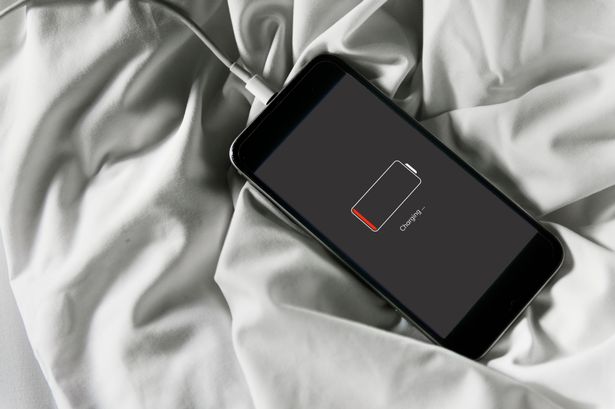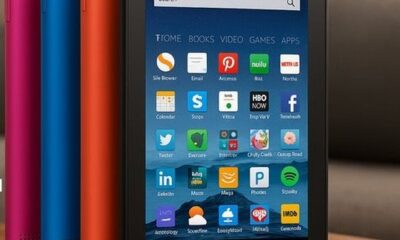Science
Experts Warn Overnight Phone Charging Harms Battery Life

Concerns have been raised about the common practice of charging smartphones overnight, with tech experts labeling it as “one of the worst things you can do” for battery health. As smartphones have become essential tools for communication, entertainment, and productivity, many people plug their devices in overnight to ensure they start their day fully charged. However, this seemingly harmless habit could lead to significant long-term damage to battery performance and increased costs for users.
The risks associated with overnight charging stem from the nature of lithium-ion batteries, which power most smartphones today. According to the Manchester Evening News, this practice can not only degrade battery life but also inflate electricity bills beyond a few pennies. If a battery weakens significantly, replacing it could cost users around £100 for professional service.
Understanding the Risks of Overnight Charging
A spokesperson from tech company Outplayed emphasized that many users do not recognize the detrimental effects of overnight charging. While it offers convenience, this practice often comes at a hidden cost. When a smartphone reaches a full charge, the device does not simply stop drawing power; instead, it enters a “trickle charge” mode. This means the charger continuously replenishes the battery, which can create excess heat.
“Think of it like constantly filling up a full glass of water,” the spokesperson noted. “The battery is working overtime to manage this constant input, which wears out the cells much faster than you’d expect.” Heat is particularly damaging to lithium-ion batteries, resulting in faster degradation and reduced lifespan.
Strategies for Improving Battery Longevity
To help users preserve their smartphone batteries, Outplayed has suggested several practical adjustments to charging habits. One recommendation is to charge devices during the day, allowing users to disconnect once the battery reaches full capacity. Additionally, users should aim for partial charges, keeping the battery levels between 20 and 80 percent instead of letting it drop to zero before a full recharge.
Another useful tip is to utilize slower chargers when time permits. Although many manufacturers promote fast charging technology, these options can generate excess heat and stress the battery. Notably, tech companies are also integrating smarter charging features to assist users. For instance, Samsung offers a “Protect Battery” mode, while Apple has introduced “Optimised Battery Charging.” These features learn user habits and delay charging beyond 80 percent until necessary, further promoting battery health.
As the reliance on smartphones continues to grow, understanding the impact of charging habits is crucial for users wishing to extend the lifespan of their devices. By making simple changes to how they charge their phones, users can potentially save money and enhance their smartphone experience in the long run.
-

 World1 week ago
World1 week agoCoronation Street’s Shocking Murder Twist Reveals Family Secrets
-

 Entertainment5 days ago
Entertainment5 days agoAndrew Pierce Confirms Departure from ITV’s Good Morning Britain
-

 Entertainment5 months ago
Entertainment5 months agoKate Garraway Sells £2 Million Home Amid Financial Struggles
-

 Entertainment4 months ago
Entertainment4 months agoAnn Ming Reflects on ITV’s ‘I Fought the Law’ Drama
-

 Health3 months ago
Health3 months agoKatie Price Faces New Health Concerns After Cancer Symptoms Resurface
-

 Entertainment4 weeks ago
Entertainment4 weeks agoCoronation Street Fans React as Todd Faces Heartbreaking Choice
-

 World4 weeks ago
World4 weeks agoBailey Announces Heartbreaking Split from Rebecca After Reunion
-

 Entertainment1 week ago
Entertainment1 week agoTwo Stars Evicted from I’m A Celebrity Just Days Before Finale
-

 World1 week ago
World1 week agoKevin Sinfield Exceeds Fundraising Goal Ahead of Final Marathons
-

 Entertainment4 months ago
Entertainment4 months agoCoronation Street’s Carl Webster Faces Trouble with New Affairs
-

 Entertainment3 months ago
Entertainment3 months agoWhere is Tinder Swindler Simon Leviev? Latest Updates Revealed
-

 Entertainment5 months ago
Entertainment5 months agoMarkiplier Addresses AI Controversy During Livestream Response





















